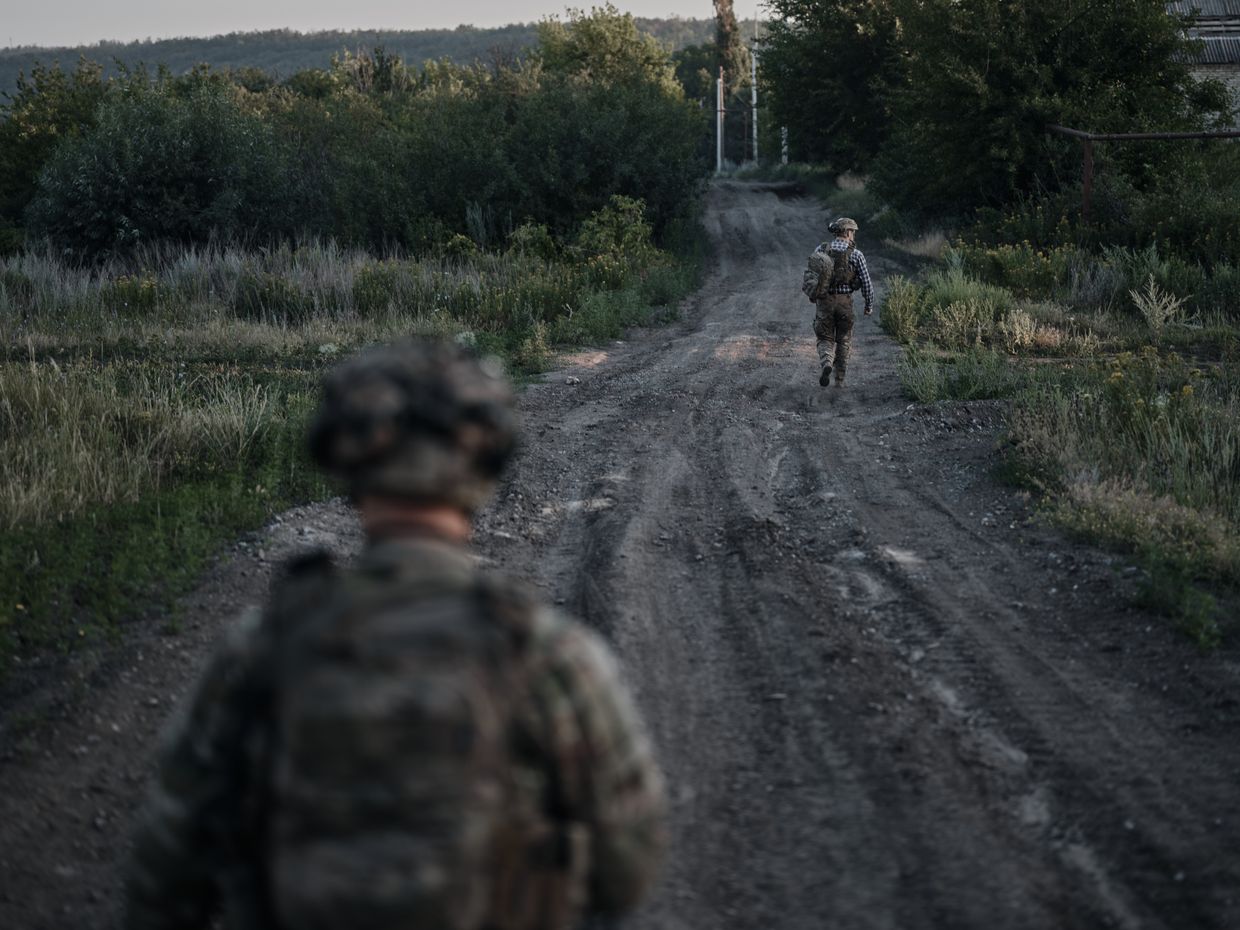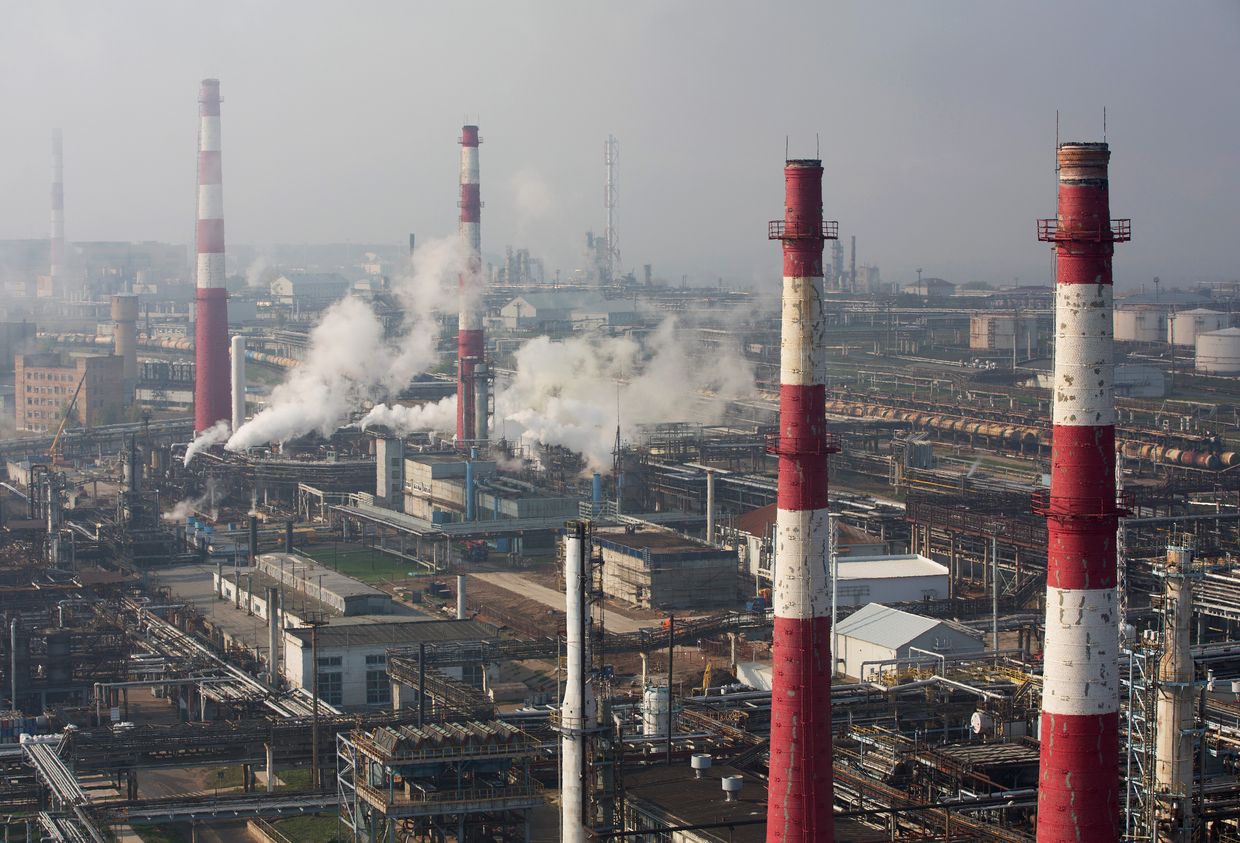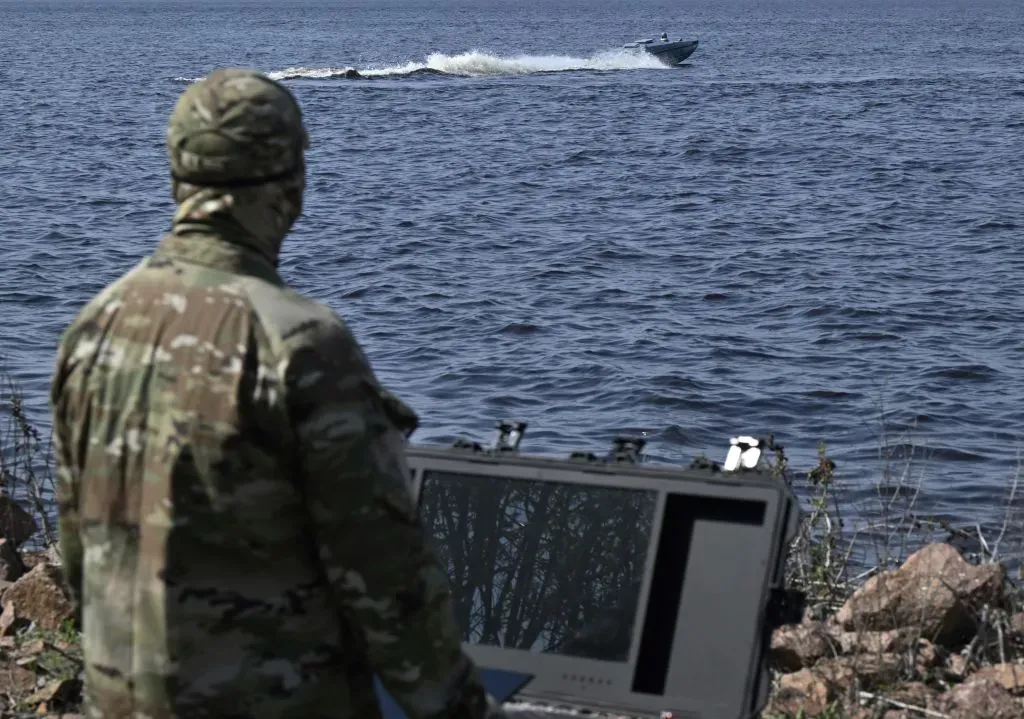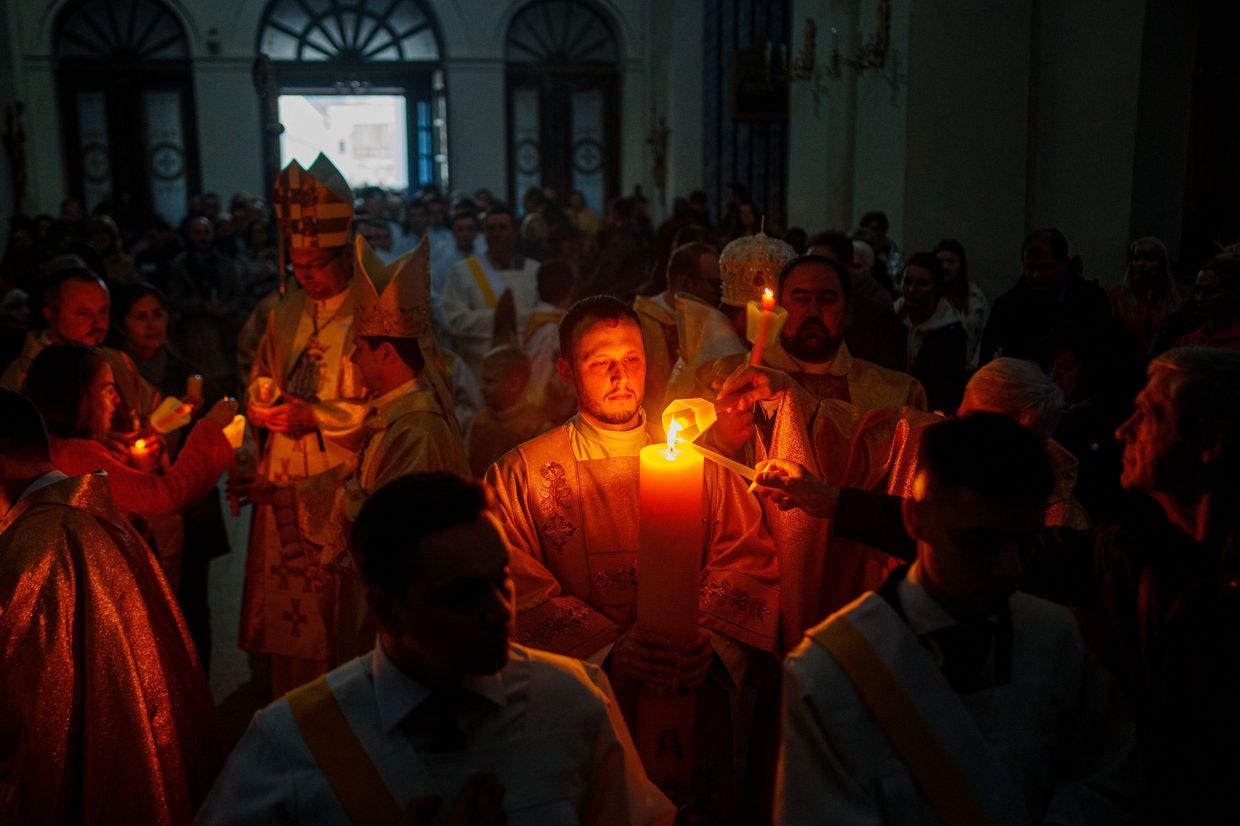Ukraine war latest: F-16s will 'challenge Russia's aerial dominance over Black Sea,' Navy chief says

Key developments on July 5:
- F-16s will challenge Russia's aerial dominance over Black Sea, Ukraine's Navy chief says
- Latvia to send over 2,500 drones to Ukraine in July, ministry says
- Orban says Kyiv and Moscow's positions on peace 'are very far apart'
- Stoltenberg hopes Ukraine will join NATO within 10 years
- Russian attack on Donetsk Oblast kills woman, injures 20 people
The upcoming delivery of F-16 fighter jets to Ukraine will challenge Russia's "full dominance" of the skies over the Black Sea, Navy Commander Oleksii Neizhpapa told Reuters in an interview published on July 5.
Ukraine is expected to receive the first F-16 jets this summer, a year after Denmark and the Netherlands founded the "fighter jet coalition" with nine other countries at the NATO summit in Vilnius in July 2023.
"F-16s with the right armaments will be able to push away Russian warplanes. The northwestern part of the Black Sea, particularly the corridor for civilian ships, will be almost 100% secure," Neizhpapa said in the interview.
Due to the naval drone attacks, Russian warships do not enter the northwestern part of the Black Sea, an area of almost 25,000 square meters, Neizhpapa said.
Ukraine wants to expand its shipping corridor, which facilities the only maritime traffic from the three main Odesa ports, to include the ports of Mykolaiv and Kherson in the country's south, the vice admiral said.
This is currently impossible since Russia controls the Kinburn Spit, he added.
The Kinburn Spit is located at the mouth of the Dnipro River south of Kherson. It is one of the last parts of Mykolaiv Oblast that remains under Russian occupation.
Kyiv was forced to set up a new export route in the Black Sea last year after Russia unilaterally terminated the Black Sea grain deal. Initially envisioned as a humanitarian corridor to allow the departure of ships stranded there since the start of the full-scale war, it has since grown into a full-blown trade route.
Latvia to send over 2,500 drones to Ukraine in July, ministry says
Riga will send more than 2,500 combat drones of different types to Ukraine this month, worth 4 million euros ($4.3 million), the Latvian Defense Ministry announced on July 5.
The first batch of 300 drones is expected to be transferred to Kyiv "in the coming days," the ministry said.
Latvia and the U.K. are the leaders of the international coalition established to supply Ukraine with drones, which have become a crucial capability on Ukrainian battlefields.
"Together with the members of the international drone coalition, we are continuously working to deliver combat drones of various capacities to Ukraine in accordance with the current needs and testing requirements of Ukraine's army," Latvian Defense Minister Andris Spruds said.
In addition, Riga is investing in the further development of drone technology, the minister added. The 2,500 drones promised for Ukraine were produced by seven Latvian companies.
Spruds announced back in May that the Latvian government would invest around 20 million euros ($22 million) in the drone coalition this year, and a similar sum to the development of Latvia's own drone capabilities.
Ukraine is also working to scale up domestic production, aiming to produce at least 1 million drones in 2024. Kyiv employs long-range drones to strike deep into Russian territory, targeting military infrastructure such as airfields and logistics, as well as oil refineries and depots.
Orban says Kyiv and Moscow's positions on peace 'are very far apart'
Hungary's Prime Minister Viktor Orban said on July 5 that Ukraine and Russia's stances on the full-scale invasion and prospects for peace are "very far apart."
The insight came to him during a trip to visit Russian dictator Vladimir Putin in Moscow, just days after meeting President Volodymyr Zelensky in Kyiv.
"Over the past two and a half years, we have realized that we cannot achieve peace without dialogue and diplomatic channels," Orban said at a press conference with Putin.
"I felt that the positions are very far from each other, that many steps need to be taken to establish peace, but the first important step towards dialogue has already been taken."
Orban also revealed three questions he asked Putin – what he thinks about existing peace initiatives, what he thinks about a ceasefire and peace talks and when they could be held, and his opinion on post-war European security architecture.
He did not say how Putin responded to any of these.
Putin earlier in the day welcomed Orban in Russia's capital, saying he hopes to discuss bilateral relations and the situation in Ukraine.
Budapest has repeatedly opposed Ukraine's accession to NATO and the EU and sanctions on Russia, undermined Western aid efforts for Ukraine, and maintained close relations with Moscow throughout the full-scale war.
Stoltenberg hopes Ukraine will join NATO within 10 years
Outgoing NATO Secretary General Jens Stoltenberg hopes that Ukraine will join the alliance within the next 10 years, he said in an interview with the DPA news agency published on July 5.
Western officials said Ukraine will not receive a membership invitation at the upcoming NATO summit in Washington but can expect "concrete ways" to accelerate its entry.
Ukraine applied for NATO membership in September 2022, half a year into Russia's full-scale invasion, but has yet to receive a clear timetable for entry. Kyiv's hopes for an invitation were dashed during the 2023 summit in Vilnius.
"I strongly hope that Ukraine will be an ally," Stoltenberg responded to a question about NATO's possible expansion within the following decade.
Ukraine's membership in the alliance has been a hotly debated issue. While many NATO leaders, including Stoltenberg, have repeatedly said that Kyiv's future is within the alliance, several top players appear hesitant.
U.S. President Joe Biden said in an interview with Time magazine in June that peace in Ukraine does not automatically mean NATO membership.
"Peace looks like making sure Russia never, never, never, never occupies Ukraine. That's what peace looks like. And it doesn't mean NATO, they are part of NATO," Biden said.
President Volodymyr Zelensky, who has repeatedly called on partners to issue a membership invitation to Kyiv, said that Ukraine will join NATO only after Russia's full-scale war ends, echoing Stoltenberg.
Russian attack on Donetsk Oblast kills woman, injures 20 people
Russian troops attacked the village of Komar in Donetsk Oblast on July 5, killing a woman and injuring at least 20 other people, Governor Vadym Filashkin reported.
The center of the front-line village was struck with three Russian guided aerial bombs, according to the governor. The attack damaged 13 houses, four stores, two high-rise buildings, two administrative building and two infrastructure facilities, he added.
One of the victims died while receiving medical care, the statement read.
















